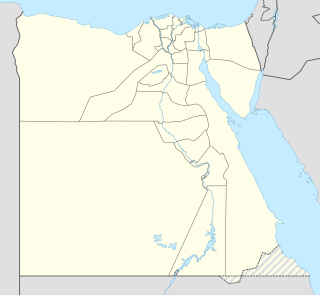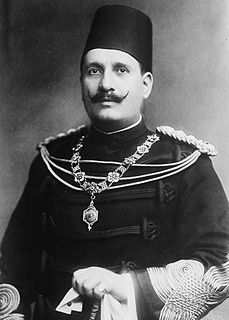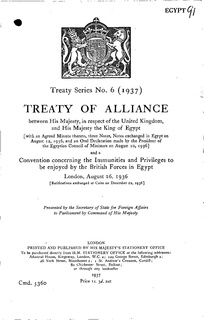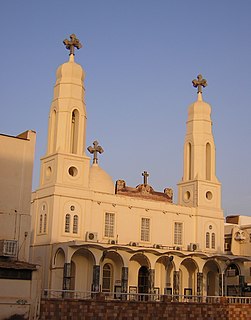| |||||||||||||
| |||||||||||||
| |||||||||||||
| |||||||||||||
 |
|---|
| This article is part of a series on the politics and government of Egypt |
| Constitution (history) |
Government |
Legislature |
| Political parties (former) |
Parliamentary elections were held in two stages in Egypt in 1923 and 1924, the first since nominal independence from the United Kingdom in 1922. The result was a victory for the Wafd Party, which won 188 of the 215 seats. [1]

Egypt, officially the Arab Republic of Egypt, is a country spanning the northeast corner of Africa and southwest corner of Asia by a land bridge formed by the Sinai Peninsula. Egypt is a Mediterranean country bordered by the Gaza Strip and Israel to the northeast, the Gulf of Aqaba and the Red Sea to the east, Sudan to the south, and Libya to the west. Across the Gulf of Aqaba lies Jordan, across the Red Sea lies Saudi Arabia, and across the Mediterranean lie Greece, Turkey and Cyprus, although none share a land border with Egypt.

The United Kingdom, officially the United Kingdom of Great Britain and Northern Ireland but more commonly known as the UK or Britain, is a sovereign country lying off the north-western coast of the European mainland. The United Kingdom includes the island of Great Britain, the north-eastern part of the island of Ireland and many smaller islands. Northern Ireland is the only part of the United Kingdom that shares a land border with another sovereign state—the Republic of Ireland. Apart from this land border, the United Kingdom is surrounded by the Atlantic Ocean, with the North Sea to the east, the English Channel to the south and the Celtic Sea to the south-west, giving it the 12th-longest coastline in the world. The Irish Sea lies between Great Britain and Ireland. With an area of 242,500 square kilometres (93,600 sq mi), the United Kingdom is the 78th-largest sovereign state in the world. It is also the 22nd-most populous country, with an estimated 66.0 million inhabitants in 2017.

The Wafd Party was a nationalist liberal political party in Egypt. It was said to be Egypt's most popular and influential political party for a period from the end of World War I through the 1930s. During this time, it was instrumental in the development of the 1923 constitution, and supported moving Egypt from dynastic rule to a constitutional monarchy, where power would be wielded by a nationally-elected parliament. The party was dissolved in 1952, after the 1952 Egyptian Revolution.

















